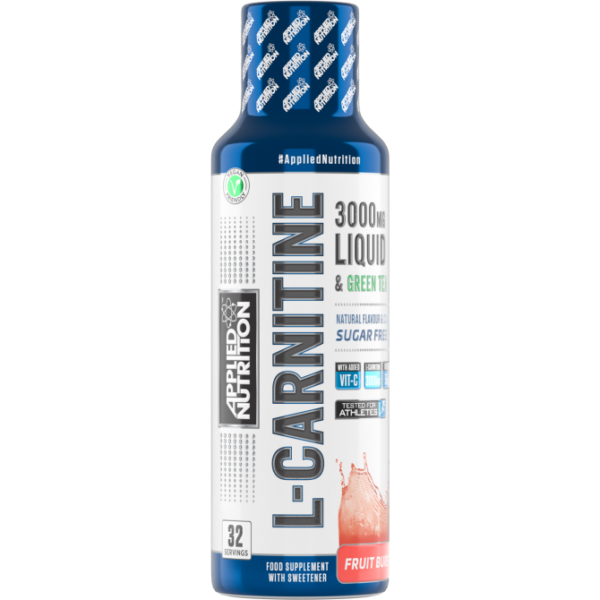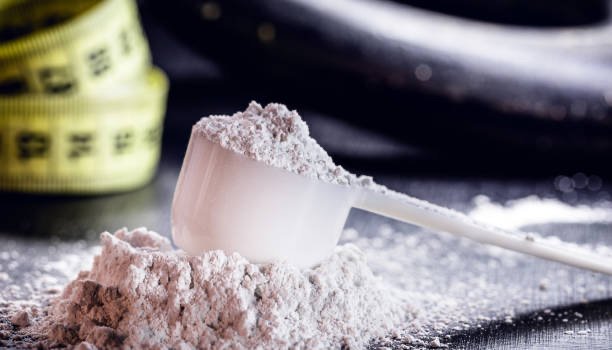Introduction: What is L-Carnitine?
L-Carnitine is a naturally occurring amino acid derivative that plays a vital role in energy production by transporting fatty acids into the mitochondria, where they are burned for fuel. It has become a popular supplement in the fitness and health community due to its ability to enhance fat metabolism, boost energy levels, and improve physical performance.
If you’re looking to accelerate fat loss, boost your endurance during workouts, or improve your recovery time, L-Carnitine is a supplement worth considering. In this article, we’ll dive into the benefits of L-Carnitine, how it works, and why it should be a part of your fitness routine.
1. The Key Benefits of L-Carnitine: Why You Should Add It to Your Supplement Stack
L-Carnitine offers a range of scientifically-backed benefits that make it a go-to supplement for those looking to improve their health and fitness levels. Here are some of the main advantages:
a. Enhanced Fat Burning
L-Carnitine is most well-known for its ability to promote fat burning. By helping transport fatty acids into the mitochondria, it enables your body to use stored fat as energy during exercise. This leads to a more efficient fat-burning process, making it a popular supplement for those looking to lose weight or reduce body fat.
b. Increased Energy Levels
Because L-Carnitine helps convert fat into usable energy, it can result in higher energy levels throughout the day, especially during workouts. Whether you’re lifting weights, doing cardio, or engaging in high-intensity interval training (HIIT), L-Carnitine can help you push through fatigue and maintain peak performance.
c. Improved Athletic Performance
Studies have shown that L-Carnitine can enhance athletic performance by reducing muscle soreness, improving endurance, and speeding up recovery. Athletes and fitness enthusiasts often take L-Carnitine to delay the onset of fatigue, allowing them to train harder and for longer periods.
d. Boosted Recovery and Reduced Muscle Soreness
L-Carnitine is also known for its ability to reduce muscle damage and improve recovery after intense physical activity. By minimizing the production of lactic acid in muscles, it helps alleviate post-workout soreness and stiffness, allowing for quicker recovery and more frequent training sessions.
e. Supports Heart Health
In addition to its fat-burning and performance-enhancing benefits, L-Carnitine has been shown to have a positive effect on heart health. It can improve blood flow and circulation, reduce inflammation, and support cardiovascular function. This makes it beneficial not only for athletes but also for individuals looking to improve their overall heart health.
2. How L-Carnitine Works: The Science Behind the Supplement
L-Carnitine plays a crucial role in the body’s energy production process by transporting long-chain fatty acids into the mitochondria, where they can be oxidized and used as fuel. This process helps the body convert stored fat into energy, making it a valuable supplement for those aiming to burn fat and improve their endurance during physical activity.
In addition to its fat-burning abilities, L-Carnitine helps remove waste products from the mitochondria, preventing the buildup of toxins that can interfere with energy production. This dual action ensures that your cells can efficiently generate energy and maintain optimal function during exercise.
3. How to Take L-Carnitine: Dosage and Best Practices
L-Carnitine comes in several forms, each with its specific benefits, but the most common forms used in supplementation include:
• L-Carnitine L-Tartrate: Known for its fast absorption and commonly used to improve physical performance and recovery.
• Acetyl-L-Carnitine (ALCAR): This form is absorbed more easily by the brain and is often used to support cognitive function and brain health.
• Propionyl-L-Carnitine: Often used to support heart health and improve blood flow.
For optimal results, it’s recommended to take L-Carnitine before workouts or with meals that contain carbohydrates. A typical dosage ranges from 500 mg to 2,000 mg per day, depending on your fitness goals and activity levels.
4. Is L-Carnitine Safe? Potential Side Effects
L-Carnitine is generally safe for most individuals when taken at the recommended dosage. However, as with any supplement, it’s essential to follow the guidelines and consult with a healthcare professional, especially if you have any underlying health conditions.
Some potential side effects include:
• Mild gastrointestinal discomfort
• Nausea or vomiting in higher doses
• Fishy body odor (in rare cases)
These side effects are rare and often occur only with excessive use. Sticking to the recommended dosage will minimize the likelihood of experiencing any negative reactions.
5. Why L-Carnitine is a Must-Have for Your Fitness Journey
L-Carnitine is more than just a fat burner—it’s a comprehensive supplement that supports energy production, enhances athletic performance, and promotes faster recovery. Whether you’re a professional athlete, a fitness enthusiast, or someone looking to shed a few extra pounds, L-Carnitine can help you achieve your goals more efficiently.
Its ability to boost energy levels, reduce muscle soreness, and improve endurance makes it a powerful tool for anyone serious about their fitness and health. By incorporating L-Carnitine into your supplement regimen, you’ll be able to train harder, recover faster, and see better results in less time.
Conclusion: Fuel Your Fitness with L-Carnitine
Incorporating L-Carnitine into your daily routine is a smart way to optimize fat metabolism, increase energy, and improve overall physical performance. With its wide range of benefits, including fat burning, enhanced endurance, and faster recovery, L-Carnitine is a supplement that can take your fitness to the next level.
If you’re serious about improving your athletic performance or losing body fat, now is the perfect time to add L-Carnitine to your supplement stack. With its scientifically supported benefits and safe usage profile, it’s a powerful tool for anyone on a fitness journey.
Sources:
1. National Institutes of Health (NIH) – L-Carnitine Overview: https://ods.od.nih.gov
2. Journal of Strength and Conditioning Research – L-Carnitine and Athletic Performance: https://journals.lww.com
3. Mayo Clinic – L-Carnitine: What You Need to Know: https://www.mayoclinic.org





